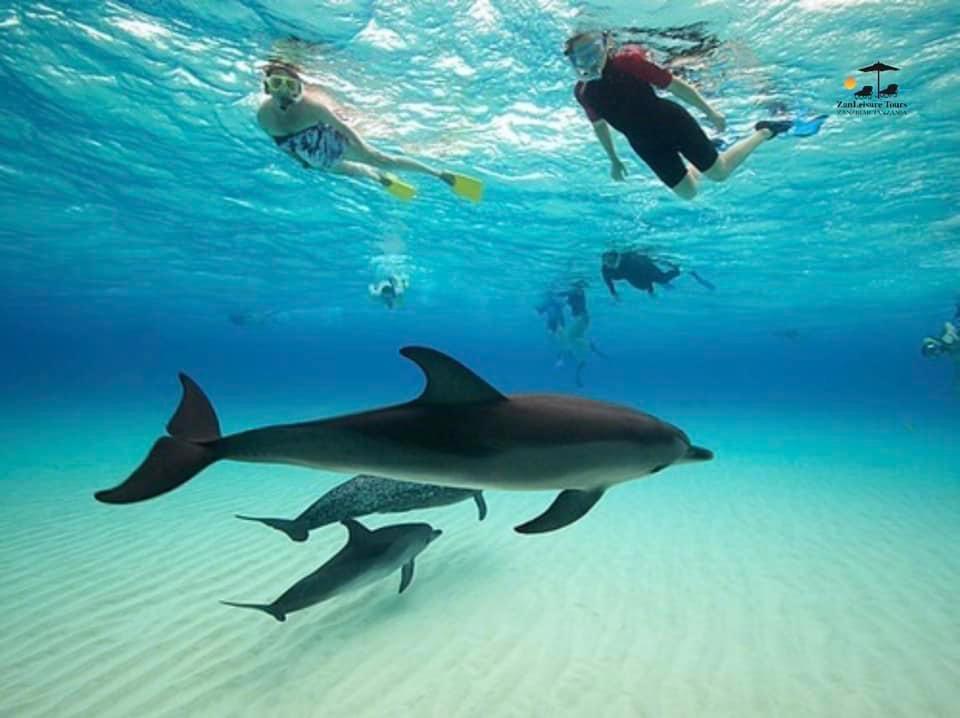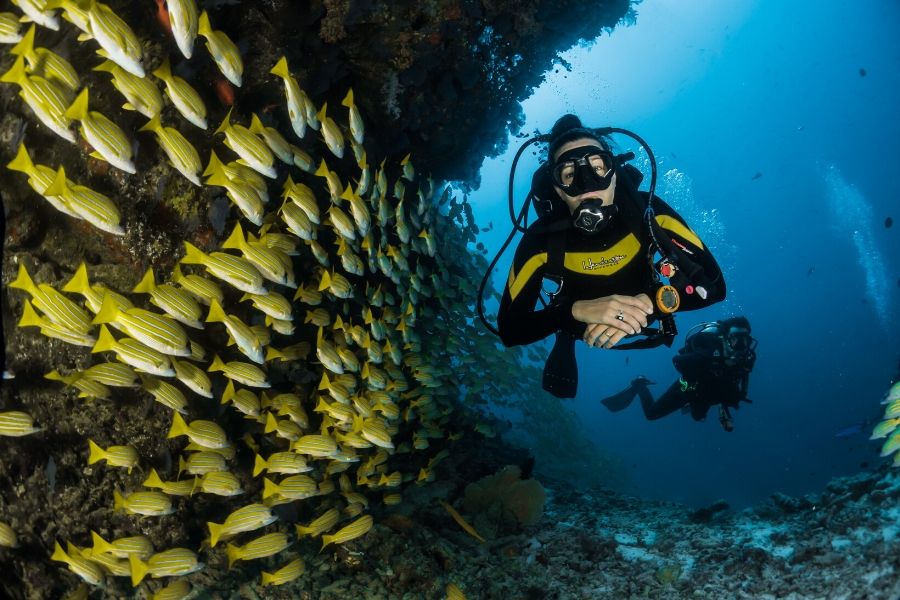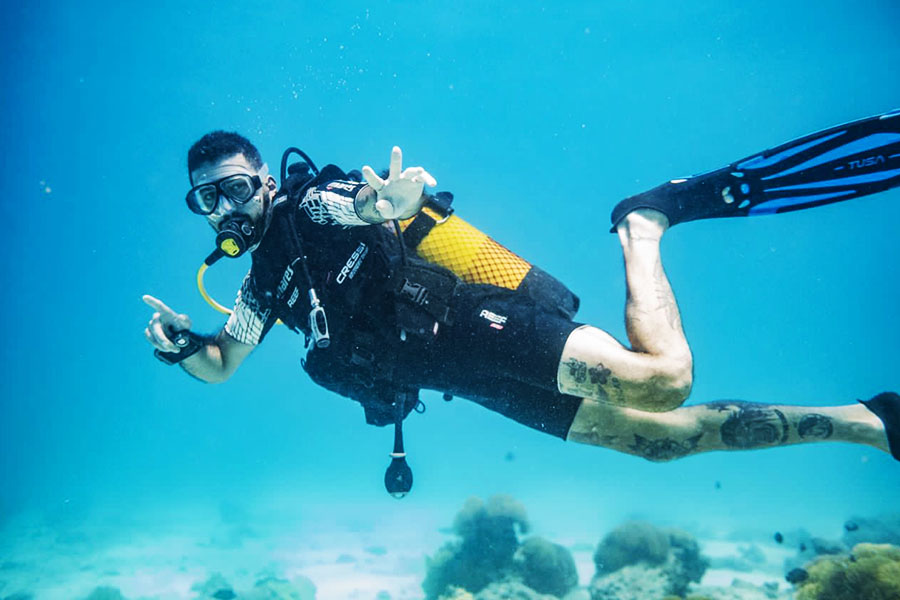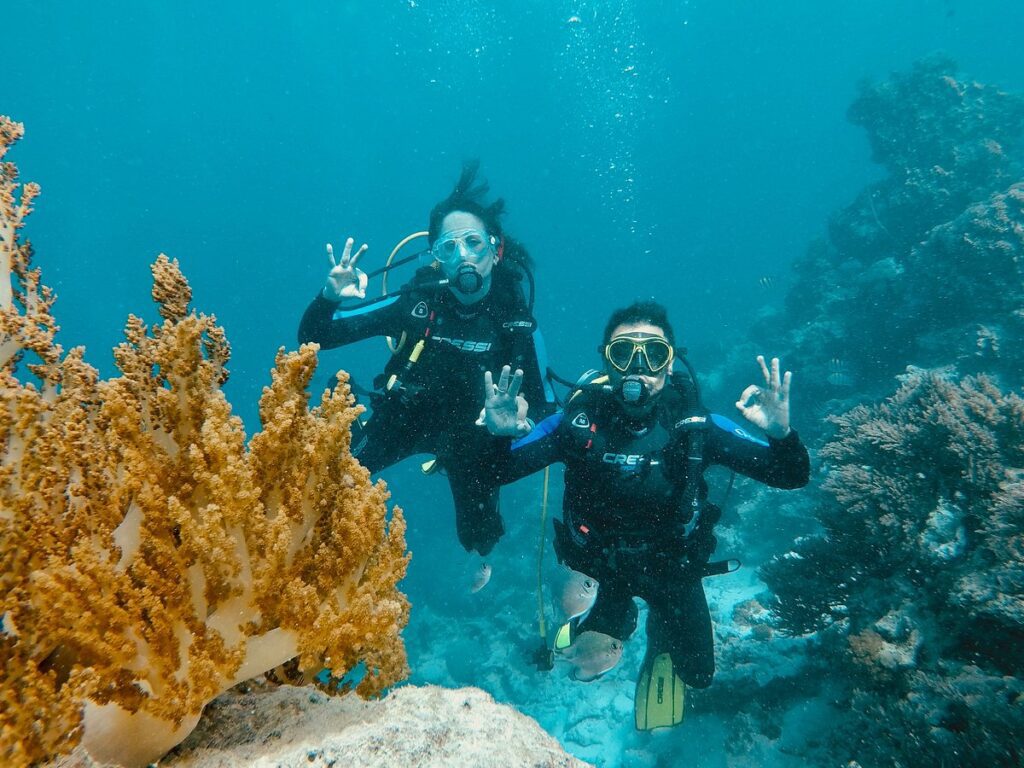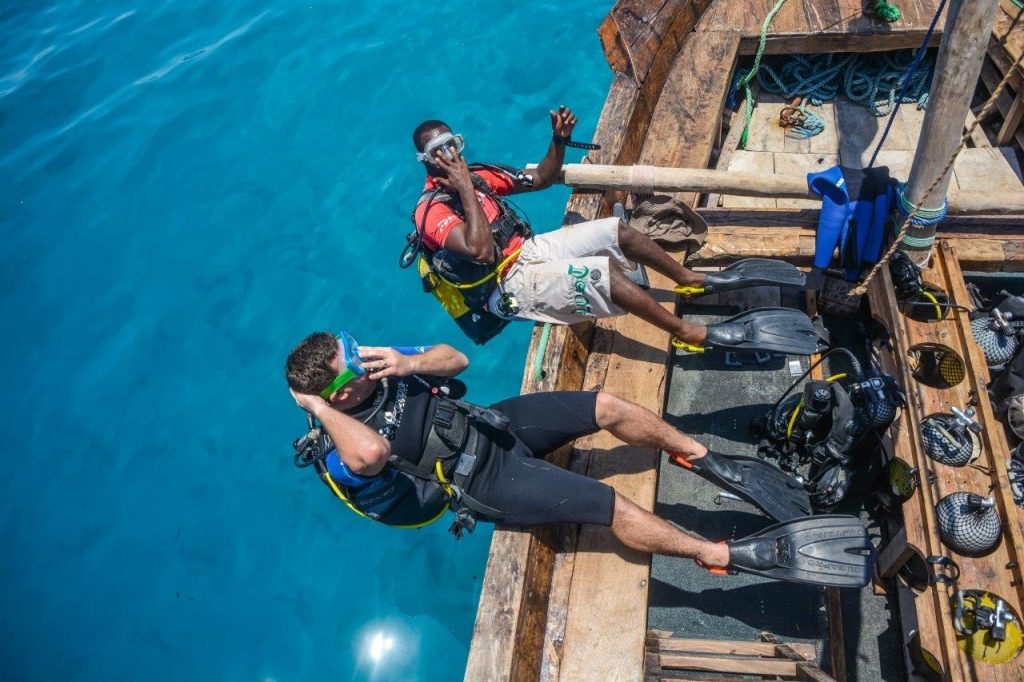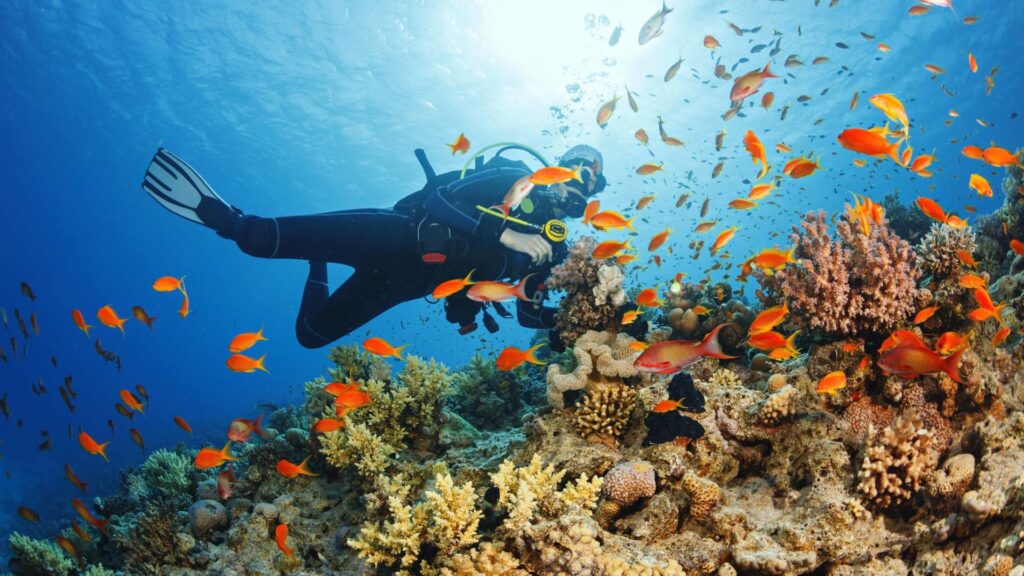Detailed Information
Itinerary
Gallery
Book
Zanzibar, with its crystal-clear waters and vibrant coral reefs, offers fantastic opportunities for scuba diving. Deep-sea diving in Zanzibar provides divers with the chance to explore the diverse marine life, including colorful coral formations and a variety of fish species. Here are some key aspects of deep scuba diving in Zanzibar:
- Dive Sites: Zanzibar has several renowned dive sites suitable for deep-sea diving. Some popular locations include Mnemba Atoll, Leven Bank, and the waters around Pemba Island. These sites offer a range of depths and underwater landscapes.
- Marine Life: The underwater world of Zanzibar is home to a rich diversity of marine life. Divers can encounter reef sharks, turtles, moray eels, schools of fish, and various species of rays. The vibrant coral reefs are teeming with colors and marine biodiversity.
- Deep Diving Certification: For deep-sea diving, especially beyond recreational limits (beyond 30 meters or 100 feet), divers may require specialized training and certification in deep diving. Make sure you have the appropriate certifications if you plan to explore deeper dive sites.
- Pinnacle Dives: Some dive sites around Zanzibar feature underwater pinnacles, providing an exciting environment for deep-sea exploration. These formations attract a variety of marine life and offer unique underwater landscapes.
- Visibility and Conditions: Zanzibar generally enjoys good visibility underwater, providing divers with clear views of the marine environment. However, like any diving destination, conditions can vary, so it’s advisable to check for the best times to visit and be aware of local weather patterns.
- Dive Centers: Numerous dive centers operate in Zanzibar, offering a range of diving courses, guided dives, and equipment rental. Experienced instructors and dive masters can help both beginners and experienced divers explore the underwater wonders.
- Conservation Efforts: Some dive centers in Zanzibar actively participate in marine conservation efforts. As a diver, consider choosing operators that promote responsible and sustainable diving practices.
CHECK WITH OUR TOUR EXPERT FOR MORE INFORMATION&BOOKING
July and August are considered the best months for diving in Zanzibar, but the high season typically spans July to September and December to January, when the weather is at its hottest and most humid.
However, unlike other diving destinations around the world, a high season doesn’t always mean lots of divers. Often even during the peak season, you’ll be able to find an almost empty diving spot. This is especially true on Pemba Island.
Although diving in Zanzibar is generally great with its perfect weather and clear waters, for divers with specific interests, migration seasons with the highest concentration of certain marine animals and the highest possibility of sightings are:
- Manta rays – December to April
- Blacktip reefs sharks – June to March
- Hammerhead sharks – November to February
- Whale sharks (Mafia Island) – October to February
- Humpback whales – July to October
- Green turtles – September and February (nesting periods)
- Eagle rays – June to March
- Whitetip reef sharks, dolphins and hawksbill turtles – year-round
- Seahorses – June to March
In short, diving in Zanzibar is possible year-round, although the main dive season is from November through to March.
The diving conditions in Zanzibar are great whether you’re a scuba diving beginner or a seasoned advanced diver. Waters are incredibly clear, corals are in wonderful condition and the water temperature in this part of the Indian Ocean is around 27-29°C between November and May.
With incredible diving conditions and high visibility all year round, the archipelago is a popular destination for scuba diving, particularly the Mnemba Atoll and Msali Island, which attracts experienced divers along with those seeking novice exploration.
Travellers can choose from thirty diving sites around Zanzibar that offer waters of consistently warm temperatures of 27°C and visibility of up to 60m, making it perfect for diving amongst large fish such as whale sharks, tuna, barracudas and Wahoo.
The strip of water between Ugunja and Pemba attracts many divers visiting Zanzibar with incredible marine biodiversity and clear conditions; it boasts some of the best diving sites in East Africa.
Most diving courses and day trips are run by reputable companies but be sure that your instructors and guides are PADI Certified before booking anything.
